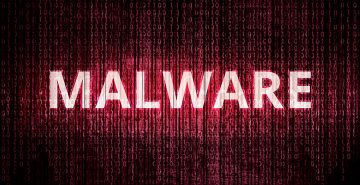What is the 'Terraform will damage your computer' Mac Pop-Up?

Users have encountered the message "Terraform will damage your computer" and it has become a source of some concern.
Thankfully, the pop-up message is not a sign of a malicious file or a threat. The pop-up is caused by the expiration of the signing certificates used for the Terraform application. Hashicorp, the maker of the Terraform application announced that the signing key used rotated out in late January 2023. Packages using the old key were then re-released using a new key.
Simply updating and re-downloading the updated and re-signed version of the Terraform package will be enough to get rid of the certificate erorr and will cause the "Terraform will damage your computer" pop-up to stop showing up.
Similar pop-ups, warning the user that a certain application will cause damage to the system are commonly a sign of a potentially unwanted application on your Mac. However, in this specific case, the pop-up warning is caused by the expired certificates.
What Are False Positives in Malware Detection?
False positives in malware detection refer to situations where antivirus or security software incorrectly identifies a legitimate file or program as malicious or infected with malware. It means that the software mistakenly flags a file as dangerous when, in reality, it poses no actual threat to the system.
False positives can occur for various reasons:
- Incorrect signatures: Antivirus software uses signature-based detection, which involves comparing files to a database of known malware signatures. If the software's signature database contains inaccurate or outdated information, it may result in false positives.
- Heuristic analysis: Antivirus programs also use heuristic analysis to identify potentially suspicious behavior or patterns in files. Sometimes, this analysis can be overly cautious and flag legitimate files as malware based on certain characteristics or behaviors, leading to false positives.
- System updates or patches: Updates or patches to the operating system or other software components can sometimes trigger false positives in malware detection. Changes in file structures, permissions, or other system-level modifications may cause antivirus software to mistakenly flag files as malicious.
- Software conflicts: In certain cases, conflicts between antivirus software and other programs installed on the system can result in false positives. Interactions between different security solutions or the presence of certain software features can trigger false detections.
False positives can be problematic as they may disrupt normal operations and lead to unnecessary actions such as quarantining or deleting legitimate files. They can also erode trust in antivirus software if they occur frequently or with critical system files.
To mitigate false positives, antivirus software vendors continuously work on improving their detection algorithms, updating signature databases, and refining heuristic analysis techniques. Users can also contribute by reporting false positives to the software vendor, allowing them to investigate and address potential issues. Regularly updating antivirus software and maintaining a backup of important files can also help mitigate any negative impact of false positives.








